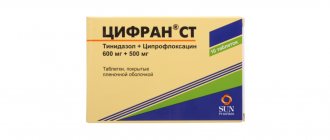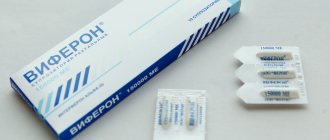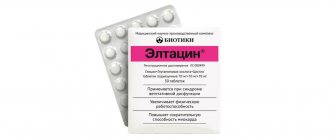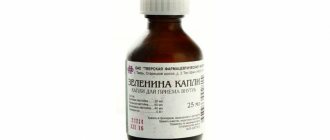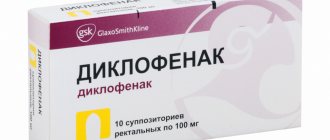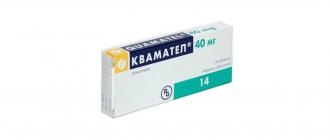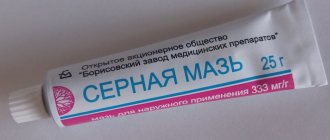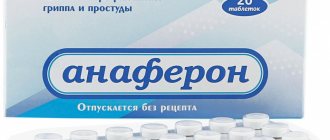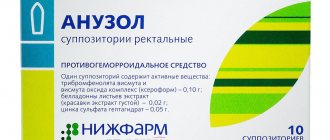“Derinat” is a broad-spectrum remedy for strengthening the immune system, used as a prevention and treatment for acute respiratory viral infections, as well as inflammations of the skin and mucous membranes. It is produced in the form of a solution, which is used for inhalation, irrigation, application and other methods.
pharmachologic effect
Derinat is an immunomodulatory drug that accelerates the processes of tissue regeneration and repair, relieves inflammation, stimulates anti-cancer immunity, has an anti-allergic effect, stimulates the natural detoxification of the body with immobilization and reduction of toxin .
In addition, the drug exhibits lymphotropic, cardioprotective and anti-ischemic properties, antioxidant and membrane stabilizer properties, and has a weak anticoagulant effect.
Pharmacodynamics and pharmacokinetics
The action of Derinat is aimed at stimulating cellular and humoral immunity, which in turn optimizes inflammatory reactions and acquired immunity (specific immune response) to foreign substances of bacterial, fungal and viral origin.
The immunomodulatory effect of the drug is determined by its ability to stimulate the activity of T- and B-lymphocytes and activate cells of the monocyte-macrophage series .
Derinat induces intracellular energy metabolism , and DNA synthesis . Due to the activation of the cellular immune response, the ability of natural killer cells (NK cells) to act on cells affected by viruses and bacteria increases.
While using the medication:
- reparative and regenerative processes are activated in the body;
- the condition of tissues and organs is normalized during dystrophic processes caused by vascular disorders;
- the susceptibility of cells to the damaging effects of chemotherapy and radiation therapy ;
- the body's resistance to various types of infections increases;
- the detoxification function of the lymphatic system is stimulated;
- indicators of myocardial contractile function improve;
- the death of cardiac muscle cells, cardiomyocytes ;
- physical performance increases.
Derinat helps remove free radicals from the body, accelerates the healing of wounds (including purulent and infected wounds), deep burns (while improving the dynamics of regeneration, epithelization and scarring of tissue), trophic ulcers.
Under the influence of the drug, scarless restoration of the mucous membranes occurs during the restoration of ulcerative defects.
Derinat does not cause any disturbances in intrauterine development or morphological abnormalities in the fetus. It also does not have a carcinogenic effect.
When used as a local remedy, it is quickly absorbed. The main route of transport of the active substance in organs and tissues is endolymphatic. At the stage of intensive entry of sodium deoxyribonucleate into the bloodstream, in parallel with metabolism and excretion, redistribution occurs between erythrocytes , leukocytes , platelets and plasma .
Metabolization occurs in the body. Metabolites are excreted partly with the intestinal contents, and mainly according to a biexponential dependence in the urine.
Compound
Active substance: sodium deoxyribonucleate - 1.5 g
Excipients: sodium chloride - 0.9 g; water for injection – up to 100 ml
Description of the dosage form
Transparent colorless liquid.
pharmachologic effect
Pharmacological action - stimulating hematopoiesis, regenerating, reparative, wound healing, immunomodulatory.
Pharmacodynamics
The drug has a modulating effect on the cellular and humoral components of the immune system and nonspecific resistance of the body, which leads to optimization of the inflammatory reaction and specific immune response to bacterial, viral and fungal antigens. The immunomodulatory effect of Derinat® is due to its ability to stimulate B-lymphocytes, activate T-helper cells and cells of the monocyte-macrophage system. The drug accelerates energy metabolism inside the cell, RNA and DNA synthesis. Activation of cellular immunity by Derinat® increases the ability of natural killer cells to act on cells affected by viruses, chlamydia, Staphylococcus aureus, Escherichia coli, Helicobacter, etc. Derinat® stimulates reparative and regenerative processes. The drug has anti-inflammatory, antitumor, antiallergic and detoxifying effects, as well as antioxidant and membrane-stabilizing properties. Derinat® normalizes the condition of the body in case of dystrophies of vascular origin and has a weak anticoagulant effect.
Derinat® helps remove free radicals from the body and reduces the sensitivity of cells to the damaging effects of chemotherapy drugs.
In the body, the drug accumulates mainly in the organs of the immune system and hematopoiesis - bone marrow, spleen, lymph nodes, as well as in the intestinal epithelium.
Increases the body's resistance to infections. Stimulates hematopoiesis (normalizing the number of leukocytes, lymphocytes, granulocytes, phagocytes, platelets).
Possessing pronounced lymphotropism, Derinat® stimulates the drainage and detoxification function of the lymphatic system. Derinat® significantly reduces the sensitivity of cells to the damaging effects of chemotherapy drugs and radiation therapy.
It has cardioprotective, anti-ischemic and cytoprotective effects. When Derinat® is included in the complex therapy of patients with coronary artery disease, the contractile function of the myocardium improves, the death of cardiomyocytes is prevented, and tolerance to physical activity increases.
In case of gastric and duodenal ulcers, the drug has a reparative effect, restoration of the mucous membrane and a pronounced immunomodulatory effect aimed at eliminating the infectious factor Helicobacter pylori.
The drug does not have embryotoxic, teratogenic or carcinogenic effects.
Pharmacokinetics
Suction and distribution
The drug is quickly absorbed and distributed in organs and tissues via the endolymphatic transport pathway. It has a high affinity for the organs of the hematopoietic system, takes an active part in cellular metabolism, integrating into cellular structures. During the phase of intensive entry of the drug into the blood, redistribution occurs between plasma and blood cells, in parallel with metabolism and excretion. After a single injection, all pharmacokinetic curves describing the change in drug concentration in the studied organs and tissues are characterized by a rapid phase of increasing and a rapid phase of decreasing concentration in the time interval of 5–24 hours. T1/2 intramuscular administration is 72.3 hours. Derinat® quickly distributed throughout the body, during daily course use it accumulates in organs and tissues: maximum - in the bone marrow, lymph nodes, spleen, thymus; to a lesser extent - in the liver, brain, stomach, small and large intestines. Cmax in the bone marrow is determined 5 hours after administration of the drug. The drug crosses the BBB. Cmax of the drug in the brain is achieved after 30 minutes.
Metabolism and excretion
Derinat® is metabolized in the body. It is excreted from the body (in the form of metabolites) partially with feces and to a greater extent with urine, according to a biexponential dependence.
Indications for the drug Derinat®
- as part of complex therapy for chronic recurrent inflammatory diseases of various etiologies that are not amenable to standard therapy;
- severe influenza, ARVI and their complications (pneumonia, bronchitis, bronchial asthma);
- chronic obstructive pulmonary diseases;
- as part of complex therapy of bacterial and viral infections;
- allergic diseases (allergic rhinitis, bronchial asthma, atopic dermatitis, hay fever);
- to activate regenerative processes;
- peptic ulcer of the stomach and duodenum, erosive gastroduodenitis;
- urogenital infections (chlamydia, ureaplasmosis, mycoplasmosis, including combined virus-associated infections);
- endometritis, salpingoophoritis, endometriosis, fibroids;
- prostatitis, benign prostatic hyperplasia;
- preoperative and postoperative periods (in surgical practice);
- cardiac ischemia;
- trophic ulcers, long-term non-healing wounds;
- obliterating diseases of the vessels of the lower extremities, chronic ischemic disease of the lower extremities of stages II and III;
- burn disease;
- rheumatoid arthritis, incl. complicated acute respiratory infection or acute respiratory viral infection;
- stomatitis induced by cytostatic therapy;
- odontogenic sepsis, purulent-septic complications;
- myelosuppression and resistance to cytostatics in cancer patients, which developed against the background of cytostatic and/or radiation therapy (stabilization of hematopoiesis, reduction of cardio- and myelotoxicity of chemotherapy drugs);
- hematopoiesis disorders;
- treatment of radiation injuries;
- pulmonary tuberculosis, inflammatory diseases of the respiratory tract;
- secondary immunodeficiency states of various etiologies.
Contraindications
Individual intolerance.
Use during pregnancy and breastfeeding
A doctor's consultation is required. If it is necessary to prescribe the drug during pregnancy, the expected benefit to the mother and the potential risk to the fetus should be assessed. During lactation, use strictly as prescribed by a doctor.
Side effects
In patients with diabetes mellitus, a hypoglycemic effect is observed, which should be taken into account when monitoring blood sugar levels.
Interaction
The use of Derinat® in complex therapy makes it possible to increase the effectiveness and shorten the duration of treatment, with a significant reduction in doses of antibiotics and antivirals with an increase in periods of remission.
Derinat® increases the effectiveness of antitumor anthracycline antibiotics and cytostatics.
The drug potentiates the therapeutic effect of basic therapy for gastric and duodenal ulcers. Derinat® reduces the iatrogenicity of basic drugs in the treatment of rheumatoid arthritis, achieving 50 and 70% improvement in a number of complex indicators of disease activity.
In case of surgical sepsis, the introduction of the drug Derinat® as part of complex therapy causes a decrease in the level of intoxication, activation of the immune system, normalization of hematopoiesis, and improves the functioning of organs responsible for the processes of detoxification of the internal environment of the body (including lymph nodes, spleen).
Directions for use and doses
V/m.
Adults. 5 ml of a 15 mg/ml solution (75 mg) is administered over 1–2 minutes, with an interval of 24–72 hours.
For acute inflammatory diseases - 3-5 injections with an interval of 24-72 hours.
For chronic inflammatory diseases - 5 injections with an interval of 24 hours, then - 5 injections with an interval of 72 hours.
In gynecology (endometritis, chlamydia, ureaplasmosis, mycoplasmosis, salpingoophoritis, fibroids, endometriosis) - 10 injections with an interval of 24–48 hours.
In urology and andrology (prostatitis, benign prostatic hyperplasia) - 10 injections with an interval of 24–48 hours.
For IHD - 10 injections with an interval of 48–72 hours.
For gastric and duodenal ulcers - 5 injections with an interval of 48 hours.
For oncological diseases - 3-10 injections with an interval of 24-72 hours.
For pulmonary tuberculosis - 10-15 injections with an interval of 24-48 hours.
For children, the drug is prescribed intramuscularly according to the same regimen as for adults. For children under 2 years of age, the drug is prescribed in a single dose of 7.5 mg (0.5 ml). In children aged 2 to 10 years, a single dose is determined at the rate of 0.5 ml of the drug per year of life. From the age of 10, a single dose is 5 ml of a 15 mg/ml solution, a course dose is up to 5 injections of the drug.
Overdose
No negative effects from overdose were identified.
special instructions
The drug can be administered subcutaneously.
IV administration of the drug is not allowed.
Release form
Solution for intramuscular administration, 15 mg/ml: in imported glass bottles with injection infusion stoppers of 2 or 5 ml; in blister trays of 5 (5 ml) or 10 (2 ml) bottles; in a cardboard pack 1 blister tray.
.
105318, Moscow, st. Mironovskaya, 33, building 28.
Tel.; Fax.
Conditions for dispensing from pharmacies
- On prescription.
Storage conditions for the drug Derinat®
- In a place protected from light, at a temperature of 4–20 °C.
- Keep out of the reach of children.
Shelf life of the drug Derinat®
- 5 years.
- Do not use after the expiration date stated on the package.
Indications for use
The solution is indicated as an independent remedy:
- with acute respiratory infections ;
- for the prevention and treatment of ARVI ;
- for the treatment of inflammatory, purulent-inflammatory and dystrophic ophthalmological diseases;
- for the treatment of inflammatory diseases of the mucous membranes of the oral cavity.
In combination with other drugs, Derinat is prescribed for the treatment of:
- chronic inflammatory diseases, as well as bacterial, fungal and other infections in gynecology;
- diseases of the upper respiratory tract occurring in acute and chronic forms (for example, rhinitis or sinusitis );
- OZNK;
- difficult-to-heal and infected wounds, trophic ulcers (including non-healing purulent wounds in diabetes mellitus );
- gangrene;
- frostbite and burns;
- hemorrhoids;
- necrosis of the skin and mucous membranes provoked by radiation therapy.
Derinat is administered intramuscularly:
- to stimulate the function of hematopoiesis ( hematopoiesis );
- in the treatment of radiation injuries ;
- in the case of the development of myelodepression (inhibition of the function of bone marrow hematopoiesis) and resistance to cytostatic drugs, which manifests itself in patients with cancer during cytostatic and/or radiation antitumor therapy;
- for the treatment of stomatitis provoked by cytostatic antitumor therapy;
- with ischemic heart disease ;
- for stomach ulcers ;
- with duodenal ulcer ;
- with acute neurological disease stages I and II;
- for the treatment of difficult-to-heal wounds and trophic skin lesions (burns, ulcers, bedsores, etc.);
- for the treatment of odontogenic sepsis complicated by purulent-resorptive fever ;
- for rheumatoid arthritis ;
- for the treatment of diseases of the urogenital tract caused by the activity of chlamydia, mycoplasmas , ureaplasmas ;
- for burn disease;
- for prostatitis ;
- with endometritis ;
- for COPD and pulmonary tuberculosis .
As an independent remedy, Derinat injections are also used in surgical practice, prescribed to patients both in the pre- and postoperative period.
Side effects
The use of Derinat in gangrenous processes provokes spontaneous rejection of necrotic tissue in areas of rejection, which is accompanied by restoration of the skin.
In patients with open wounds and burns, the use of the drug can slightly reduce the intensity of pain.
Rapid injection of the solution into the muscle provokes moderate pain at the injection site (such a reaction does not require special treatment).
In some cases, a few hours after the injection, the temperature may briefly rise to 38 ° C. To reduce it, symptomatic drugs are prescribed, for example: Analgin , Diphenhydramine , etc.
Patients with diabetes mellitus may experience a hypoglycemic effect of the drug. Therefore, they need to constantly monitor their blood sugar levels.
Contraindications and side effects
The drug has no contraindications, with the exception of individual intolerance to the components that make up it.
Side effects occur infrequently, but are not excluded:
- rejection of dead tissue during gangrene;
- painful sensations in the area where the injection was given (go away on their own);
- hypoglycemia (patients with diabetes should monitor sugar levels);
- short-term increase in body temperature to 37.5-38.0°C.
Most of the described consequences go away on their own and do not require treatment. But if they do not disappear within the first day, it is recommended to consult a doctor.
Derinat, instructions for use (Method and dosage)
The solution, used as a local and external remedy, is used in the form of eye drops, nasal drops, rinses, microenemas, applications and irrigations.
The drug is intended for the treatment of children (and it can be prescribed to children from the first day of life) and adult patients.
Treatment with Derinat can be combined with taking other medications in the form of tablets, ointments, and injection solutions.
Instructions for use of Derinat in the form of rinses, applications, irrigations and microenemas
Diseases of the oral mucosa are treated by rinsing with Derinat (one bottle of solution is enough for one or two rinses). The frequency of procedures is from 4 to 6 times a day. They must be done within 5-10 days.
For the treatment of chronic forms of inflammatory and infectious diseases in gynecology, intravaginal administration of the drug with irrigation of the cervix or intravaginal administration of tampons with the drug soaked in a solution are prescribed.
One procedure requires 5 ml of Derinat. The frequency of procedures is 1-2 per day, the course of treatment is from 10 to 14 days.
For hemorrhoids , microenemas into the rectum are indicated. For one procedure, take from 15 to 40 ml of solution. The duration of treatment is from 4 to 10 days.
For ophthalmological diseases accompanied by inflammatory and degenerative processes, Derinat is prescribed to be instilled into the eyes for 14-15 days, 2 or 3 times a day, one or two drops.
In case of necrosis of the skin and mucous membranes caused by irradiation, with difficult-to-heal wounds, trophic ulcers of various origins, frostbite, burns and gangrene , a sterile application bandage should be applied to the affected areas (using gauze folded in two layers) with a solution applied to it.
Applications are made 3-4 times during the day. It is also possible to treat lesions using Derinat in the form of a spray. The drug is sprayed 4 or 5 times a day. A single dose varies from 10 to 40 ml. The duration of treatment is from 1 to 3 months.
Derinat nasal drops, instructions for use
To prevent respiratory viral infections, Derinat nasal drops are instilled into each nasal passage, two at a time, with a frequency of use of 2 to 4 times a day. Duration of treatment is from one to two weeks.
When cold symptoms appear on the first day, it is recommended to instill two or three drops into each nasal passage every hour and a half. Then the treatment is continued by instilling two or three drops into each nasal passage for a month. The frequency of instillations is 3-4 times a day.
Treatment of inflammatory diseases of the paranasal sinuses and nasal cavity involves administering three to five drops into each nasal passage for one to two weeks, 4-6 times a day.
For acute nasal insufficiency, it is recommended to instill one or two drops into each nasal passage 6 times a day for six months.
Derinat injections, instructions for use
The average single dose of Derinat for an adult patient is 5 ml of a 1.5% solution (equivalent to 75 mg). To reduce pain, it is recommended to inject the drug into the muscle over one to two minutes, maintaining intervals of 24-72 hours between injections.
The frequency of injections and the interval between injections depend on the patient’s diagnosis. So, for ischemic disease , 10 injections are prescribed once every 2 or 3 days (every 48-72 hours). For patients with gastric ulcers or duodenal ulcers, 5 injections are recommended with an interval of 48 hours.
For cancer patients - from 3 to 10 injections with an interval of 1-3 days. In andrology (for example, for prostatitis ) and in gynecology (for fibroids , salpingitis , etc.) - 10 injections with an interval of 1-3 days. Patients with tuberculosis - 10-15 injections with an interval of 1-2 days.
For acute inflammatory diseases, it is recommended to give 3 to 5 injections with an interval of 1-3 days. For chronic inflammatory diseases, 5 injections are given every 24 hours, then another 5 injections every 72 hours.
The instructions for use of Derinat for children indicate that the frequency of intramuscular injections of the solution for a child is the same as for an adult patient.
For children under two years of age, the average single dose of a 1.5% solution is 0.5 ml (corresponding to 7.5 mg). For children from 2 to 10 years old, a single dose is determined at the rate of 0.5 ml of solution for each year of life.
Inhalations with Derinat
In the form of inhalations, the drug is prescribed for the treatment of diseases of the respiratory system: tonsillitis , bronchial asthma , hay fever , adenoids , allergies . For inhalation, the solution in ampoules is mixed with saline in a ratio of 1:4 (or 1 ml of Derinat per 4 ml of saline).
The full course of therapy is 10 procedures lasting 5 minutes each. Treatment should be carried out 2 times a day.
Derinat solution for internal and external use 0.25% fl 10ml
Derinat drops 0.25% fl 10ml N 1
Release form
Solution for external use
Package
Bottle 10 ml.
pharmachologic effect
Derinat is an immunomodulator.
It has a modulating effect on the cellular, humoral components of the immune system and nonspecific resistance of the body, which leads to optimization of the inflammatory reaction and specific immune response to bacterial, viral and fungal antigens.
Possessing pronounced lymphotropism, Derinat stimulates the drainage and detoxification function of the lymphatic system, primarily at the site of the inflammatory reaction.
The drug activates antiviral, antifungal and antimicrobial immunity, stimulates reparative and regenerative processes, has an anti-inflammatory effect, normalizes the condition of tissues and organs in dystrophies of vascular origin.
Derinat promotes the healing of trophic ulcers. In case of gangrenous processes under the influence of the drug, spontaneous rejection of necrotic masses in the affected areas (for example, on the phalanges of the fingers) is observed. Derinat promotes rapid healing of infected wounds and deep burns.
Indications
As monotherapy:
- prevention and treatment of ARVI;
- acute respiratory infections;
- inflammatory and dystrophic eye diseases;
- inflammatory diseases of the oral mucosa.
As part of complex therapy:
- chronic inflammatory diseases, fungal, bacterial and other infections of the mucous membranes in gynecology;
- acute and chronic diseases of the upper respiratory tract (rhinitis, sinusitis /including frontal sinusitis, sinusitis/);
- obliterating diseases of the lower extremities;
- trophic ulcers;
- gangrene;
- infected and long-term non-healing wounds (including diabetes mellitus);
- burns;
- frostbite;
- post-radiation necrosis of the skin and mucous membranes;
- haemorrhoids.
Contraindications
Hypersensitivity to the components of the drug.
Use during pregnancy and breastfeeding
The patient should be warned that before using the drug during pregnancy and lactation, consultation with a doctor is necessary. If it is necessary to prescribe the drug during pregnancy, the expected benefit to the mother and the potential risk to the fetus should be assessed.
special instructions
IV administration of the drug Derinat is not allowed! To reduce pain during intramuscular injection, it is recommended to administer the drug slowly over 1-2 minutes. Immediately before administering the drug, the bottle with the solution should be warmed in your hand to body temperature.
Compound
1 ml of solution contains:
Active substance: sodium deoxyribonucleate 2.5 g;
Excipients: sodium chloride - 1 g; water for injection - up to 1000 ml.
Directions for use and doses
Externally, locally.
The drug is prescribed to children from the first day of life and to adults.
For the prevention of ARVI - 2 drops in each nasal passage 2-4 times a day for 1 month. When symptoms of colds appear - every 1-1.5 hours during the day, then - 2-3 drops in each nasal passage 3-4 times a day for 7-10 days (until recovery). For inflammatory diseases of the nasal cavity and paranasal sinuses - 3-5 drops in each nasal passage 3-6 times a day or insert cotton swabs with the drug into each nasal passage 1-2 times a day for 5-10 minutes, course duration - 1 –2 weeks
For chronic inflammatory diseases; fungal, bacterial and other infections and violations of the integrity of the mucous membrane in gynecological practice - intravaginal administration followed by irrigation of the cervix or intravaginal administration of tampons with the drug, 5 ml per procedure 1-2 times a day for 10-14 days.
Inflammatory eye diseases of a viral and bacterial nature (conjunctivitis, keratitis, adenoviral keratoconjunctivitis, uveitis, maculitis, blepharitis) - 2 drops 4-6 times a day, course - from 10 days to 1-3 months.
Injuries to the organ of vision, to speed up the healing process during surgical interventions - 2 drops 5 times a day, course - 1-3 months.
Eye irritation (including “computer vision syndrome”), progressive myopia and accommodation spasm - 2 drops 3 times a day for a month.
For diseases of the oral mucosa (stomatitis, gingivitis, aphthous ulcers), rinse with the drug 4-6 times a day (1 bottle - 1-2 rinses). The duration of treatment is 5–10 days.
In proctology, it is used in the form of microenemas in the rectum, 15–40 ml each, the course is 7–14 days.
For post-radiation necrosis of the skin and mucous membranes, for long-term non-healing wounds, burns, frostbite, trophic ulcers of various etiologies, gangrene - apply application bandages (gauze in two layers) to the affected areas and apply the drug to it 3-4 times during the day, with simultaneous instillation of 1-2 drops into the nose 6 times a day (course of treatment - 1-3 months).
Side effects
Local reactions: moderate pain at the injection site.
Possible: hypoglycemia (in patients with diabetes mellitus); in some cases - 1.5-3 hours after injection, short-term hyperthermia, which can be relieved by the use of symptomatic drugs.
Drug interactions
Combined use with other drugs may increase the therapeutic effect of Derinat. When used together, Derinat may enhance the effect of anticoagulants.
Interaction
When applied topically, the drug is not compatible with hydrogen peroxide and fat-based ointments.
The use of the drug in combination with the main therapy increases the therapeutic effect and reduces the duration of treatment. This also makes it possible to reduce the doses of antibiotics and antiviral drugs.
Against the background of using Derinat:
- the effectiveness of therapy with antitumor anthracycline antibiotics and cytostatic drugs increases;
- the effect of basic therapy prescribed to patients with peptic ulcer ;
- The iatrogenicity of drugs prescribed for the treatment of rheumatoid arthritis (up to 50-70%, which is also accompanied by an improvement in a number of complex indicators of disease activity).
In cases where a surgical infection provokes the development of sepsis , the introduction of Derinat into combination therapy allows:
- reduce the level of intoxication in the body;
- increase the activity of the immune system;
- normalize hematopoietic function;
- improve the performance of organs involved in removing toxins from the body.
Derinat's analogs
Level 4 ATC code matches:
Epobiocrine
Recormon
Epocrine
Erythropoietin
Structural analogues of Derinat are drugs:
- Panagen
- Deoxynate
- Sodium deoxyribonucleate
There are a huge number of drugs on the market that have an effect similar to Derinat:
- Grippferon
- Anaferon
- Viferon
- Orvirem
- Oscillococcinum
Derinat or Grippferon - which is better?
This question often arises for many mothers who are trying to protect their children from influenza and ARVI . The drugs are incomplete analogues, but at the same time they are very similar in therapeutic effect and indications.
The composition and origin of the drugs vary greatly, however, biologically active proteins in both Grippferon and Derinat have immunomodulatory, antiviral and anti-inflammatory effects.
Some are inclined to consider Derinat a slightly more effective medicine than Grippferon , it is a stronger immunomodulator and has a wider spectrum of action. This explains the presence of Derinat in a dosage form for intramuscular injection ( Grippferon is available only in the form of drops and nasal spray).
It should be remembered that in cases where health is involved, self-medication is unacceptable, and the final decision on prescribing a particular drug is made by the attending physician, because the same drug can act differently on different patients.
Derinat for children
The action of the drug is aimed at increasing the activity of immune cells. For this reason, it is often prescribed to children prone to frequent colds .
Research and reviews of Derinat drops for children and Derinat injection solution indicate that both of these dosage forms are well tolerated by children, have virtually no contraindications and rarely cause unwanted side reactions.
This allows the drug to be used to treat children of different ages, including newborns from the first days of life.
To treat upper respiratory tract infections, children are prescribed inhalations with Derinat. Nasal drops for children are indicated as a therapeutic and prophylactic remedy for runny nose, sinusitis , ARVI , influenza , etc.
As a rule, for preventive purposes, 1-3 drops are instilled into each nasal passage. If the drug is used to treat a child, the dose is increased to 3-5 drops. The frequency of administration can be every hour or hour and a half.
If there are problems with the adenoids , a runny nose or sinusitis , the most effective method of treatment with Derinat is to swab the nasal passages with a cotton swab soaked in the solution with a frequency of procedures 6 times a day.
If a child is susceptible to conjunctivitis and other purulent-inflammatory ophthalmological diseases, the instructions recommend instilling the solution into the conjunctival sac of the affected eye, 1-2 drops three times a day.
Inflammation of the oral mucosa or gums can be relieved by rinsing with Derinat. If the child is too small and does not know how to rinse his mouth, the mucous membrane is treated several times a day with gauze soaked in a solution.
In complex therapy, the solution is often prescribed for the treatment of helminthiasis, wounds, burns and frostbite, vulvovaginitis in girls, accompanied by perianal itching and intestinal disorders.
Derinat for the treatment of children: effects
Due to undeveloped immunity, the risk of contracting viral and bacterial infections in young children is very high. As a rule, this occurs by airborne droplets through the mucous membrane of the nasopharynx. Derinat nasal drops for children will help prevent infection. When using them, it is possible to avoid the development of serious diseases that pose a threat to health.
The main property that distinguishes Derinat for children is its immunomodulatory effect. That is why the drug is often prescribed for prophylaxis in newborns under unfavorable epidemiological conditions. The active substance, entering the mucous membrane of the nasopharynx, provides local immunity and prevents the penetration of infection into the child’s body.
But besides this, after absorption into the surface of the mucous membrane, the active substance enters the bloodstream and strengthens the overall immune system. This means that Derinat drops for children can successfully fight viral and bacterial infections that have entered the body. In addition to the immunomodulatory effect of Derinat, the instructions focus on this, helping children recover faster from ARVI.
Reviews about Derinat
Reviews about the drug (and reviews about Derinat for children) are quite contradictory: some praise it, noting its high efficiency and ease of use, while others call it a rather expensive “dummy”.
Immune boosters are a complex topic. On the one hand, the pharmaceutical market offers a fairly large number of immunomodulators, differing both in strength and in the way they affect the body.
On the other hand, when trying to evaluate the real effectiveness of these drugs, a number of difficulties arise, since it is impossible to know how the body would react to a particular disease without stimulating its own immunity.
The main advantages of the drug are its naturalness, safety and ease of use, which is why it is prescribed even for infants. However, some doctors in reviews of the drug warn that its safety remains not fully studied today.
Reviews of Derinat injections and reviews of Derinat drops left by patients are more optimistic: the vast majority of patients say that the use of both drops and injections allows one to quite quickly relieve the symptoms of the disease and reduce the likelihood of its relapse.
In gynecology, injections are often included in the treatment regimen for inflammatory diseases and tumor processes. Both doctors and patients confirm that in some cases, as a result of therapy, tumors begin to shrink after one or two injections.
Studies show the effectiveness of the drug for the treatment of inflammation and pseudo-erosions of the cervix. In addition, Derinat exhibits the properties of a universal immunocorrector for hormonal-dependent endometrial hyperplasia .
Treatment with them allows one to obtain a fairly high percentage of recoveries from inflammatory processes in the organs of the reproductive system, mammary fibroids , fibroids , chlamydia and endometriosis .
Young mothers say that the drug helps children better resist so-called “kindergarten infections”, accelerates the maturation of the immune system and activates the body’s defenses.
They note the effectiveness of Derinat for adenoids , rhinitis , sinusitis , tonsillitis , bronchial asthma and a number of other diseases to which young children are so susceptible. In cases where nasal drops are used to treat viral infections, their use significantly reduces the severity of symptoms of fever and intoxication of the body, as well as the likelihood of developing disease complications.
At the same time, some parents state that the use of Derinat gives the most pronounced effect only in the early stages of the disease or when using the drug to prevent influenza and ARVI .
Negative reviews are due to the fact that the effect of the treatment was short-lived, as well as the pain of drug injections. Dr. Komarovsky believes that a child’s natural immunity to infection is formed five days after the child “caught” the virus, and a common cold goes away without specific treatment within the same period.
Therefore, in his opinion, to alleviate the course of the disease, the child simply needs to create favorable conditions: humidify the air in the room, provide plenty of fluids and access to fresh air.
Derinat price
Cost of the drug in Russia
The price of nasal drops for children and adults in Russian pharmacies is about 350 rubles, the price of Derinat in ampoules is about 2,000 rubles. The product for external use costs an average of 350 rubles.
The drug is available only in the form of solutions for injection and external use, so it is pointless to look for Derinat tablets in pharmacies.
Cost of the drug in Ukraine
The price of Derinat drops in Ukrainian pharmacies varies within 200 UAH per bottle of 0.25% solution with a volume of 10 ml. The cost of the solution for external use is within 250 UAH. You can buy Derinat injections in Kyiv and other large cities of Ukraine for an average of 1,500 UAH per pack of 5 ampoules of 5 ml.
- Online pharmacies in RussiaRussia
- Online pharmacies in KazakhstanKazakhstan
ZdravCity
- Derinat spray solution external.
approx. 0.25% 10ml Tekhnomedservis ZAO FP/ Immunnolex LLC FZ RUR 381 order - Derinat solution of places. and outside approx. 0.25% dropper bottle 10 mlTehnomedservice ZAO FP/ Immunnolex LLC FZ
290 rub. order
- Derinat solution for places. and adv. approx. 0.25% fl. 10mlImmunnolex LLC FZ
270 rub. order
Pharmacy Dialogue
- Derinat capili 0.25% 10mlFZ Immunolex LLC
RUB 335 order
- Derinat (solution 0.25% bottle with 10ml spray) Tekhnomedservice FP CJSC
RUR 622 order
- Derinat solution for IM administration 1.5% 5ml bottle No. 5FZ Immunnolex LLC
RUB 2011 order
- Derinat spray 0.25% 10mlFZ Immunnolex LLC
RUB 411 order
- Derinat solution 0.25% 10mlFZ Immunolex LLC
RUB 261 order
show more
Spray "Derinat": composition, description
This drug has a pronounced immunomodulatory effect. It accelerates tissue restoration and metabolism, due to which harmful components leave the body naturally faster. The product also has antioxidant functions, strengthens cell membranes, and works as a cardioprotector.
The composition includes the active substance – the organic salt sodium deoxyribonucleate. Auxiliary components are table salt (sodium chloride) and water. Available in the form of a solution that is administered intramuscularly. It appears to be a clear liquid. Another form is a solution for external use (without injections).
It is advisable to store both solutions in the refrigerator or in a dark place indoors (up to 20°C). Must be protected from direct sunlight. Access for children is excluded. The shelf life in a closed container is 5 years, after opening – 2 weeks.
